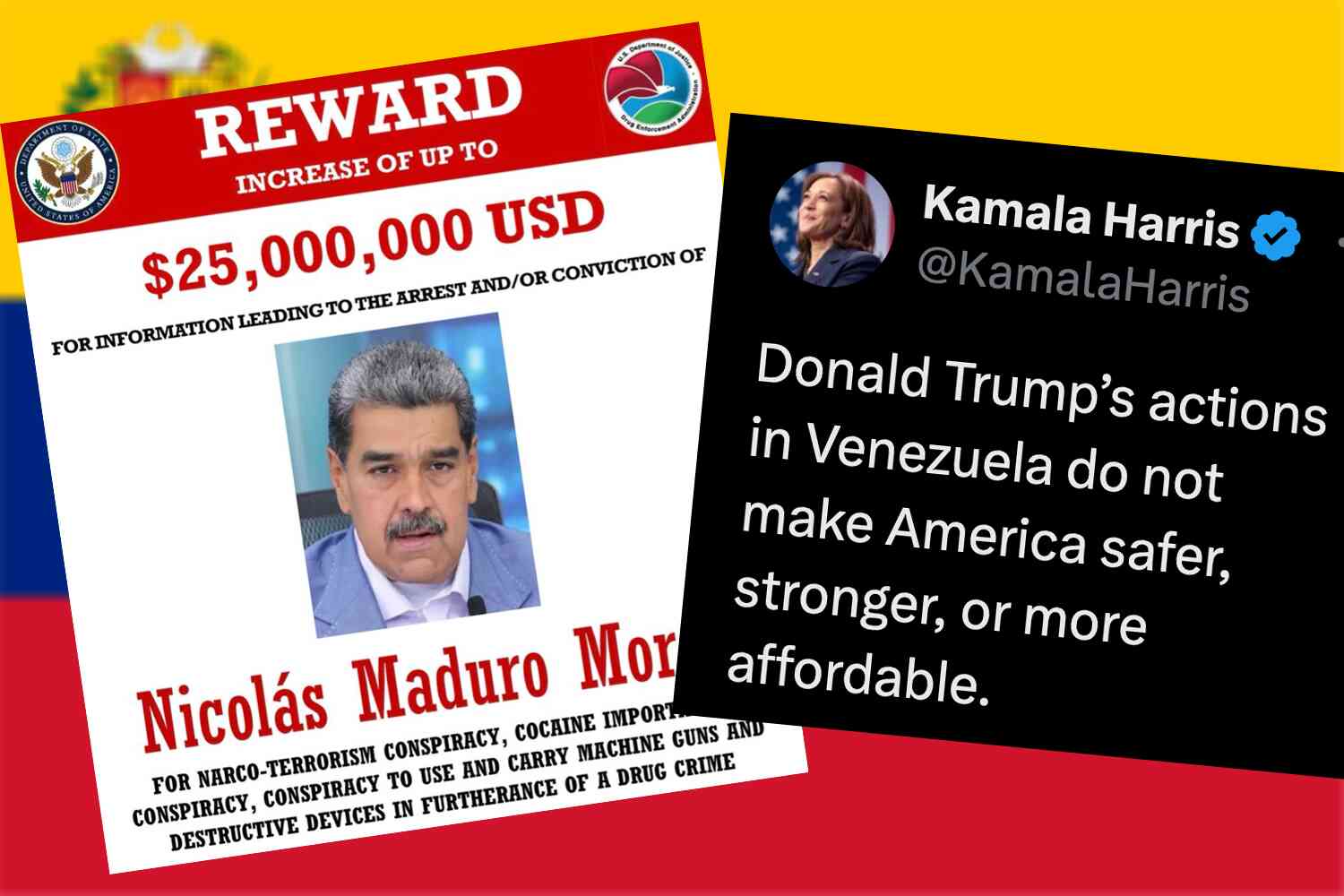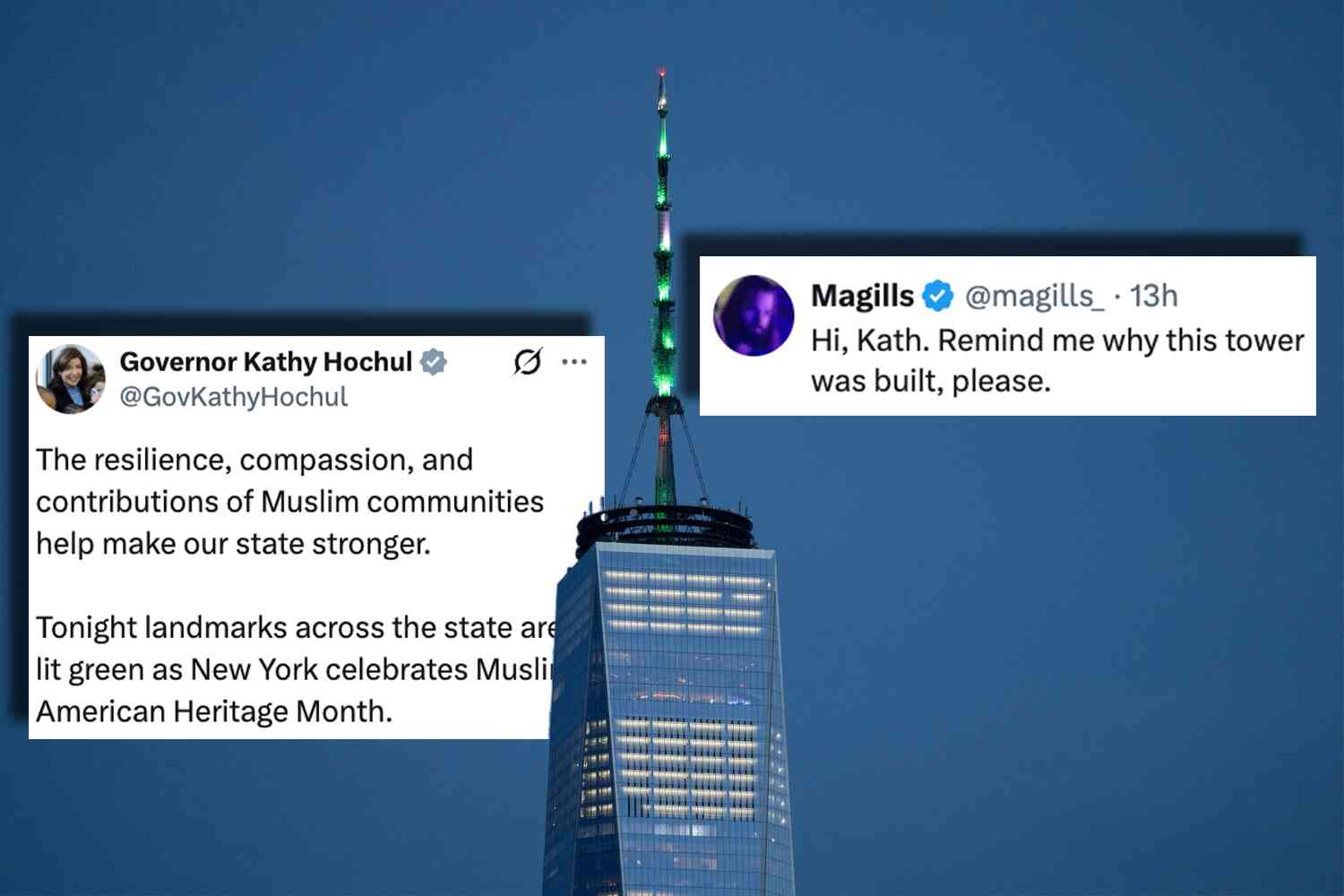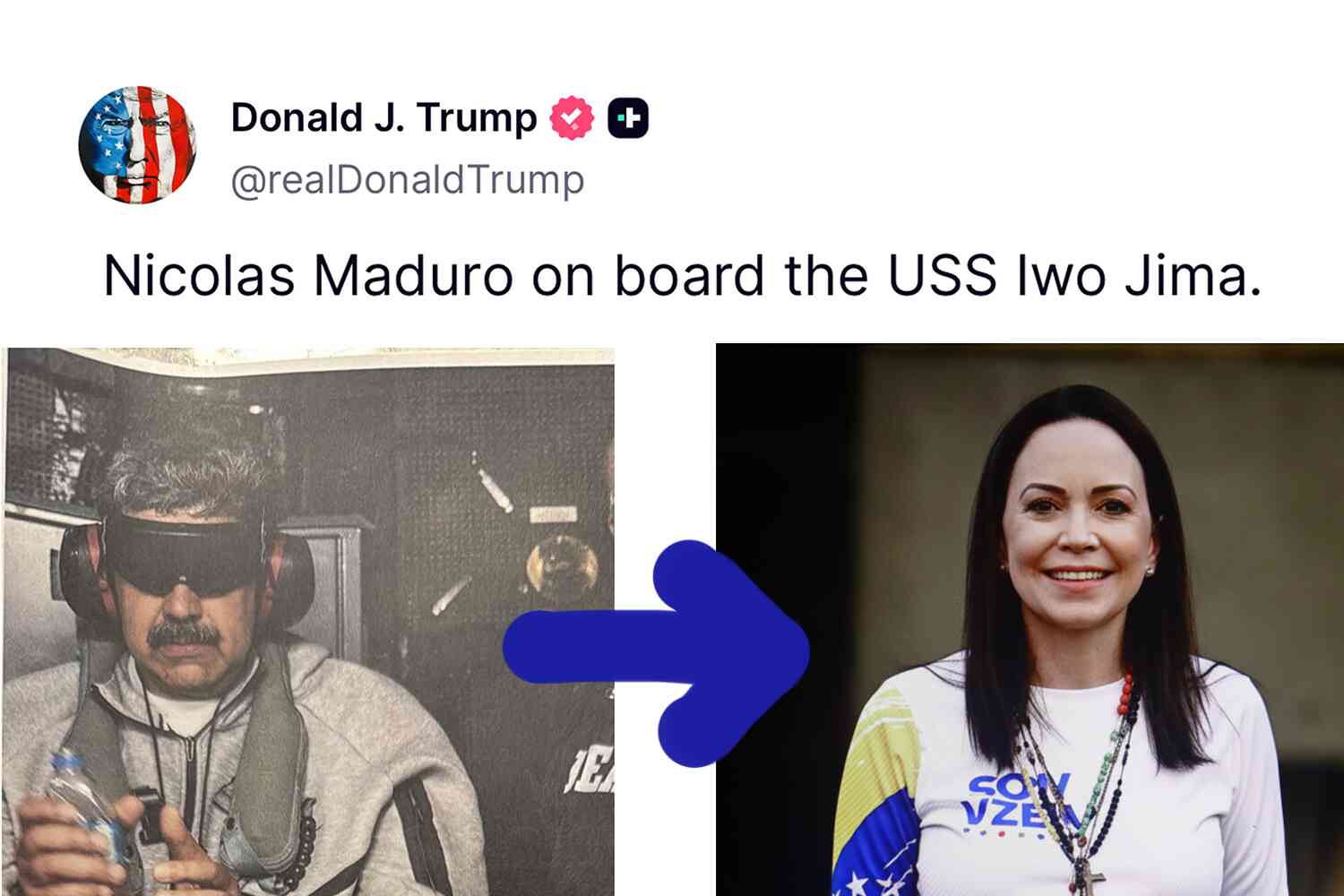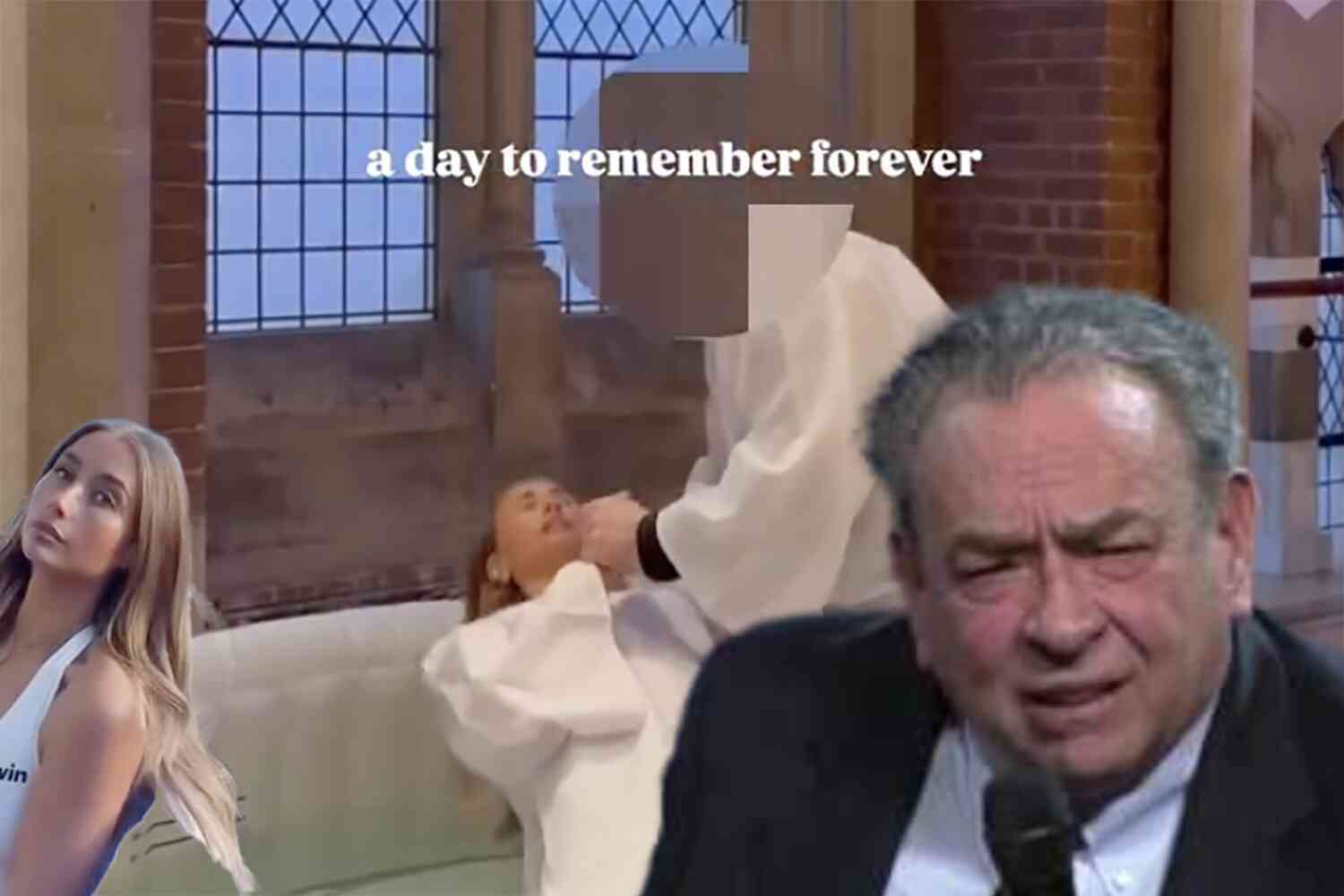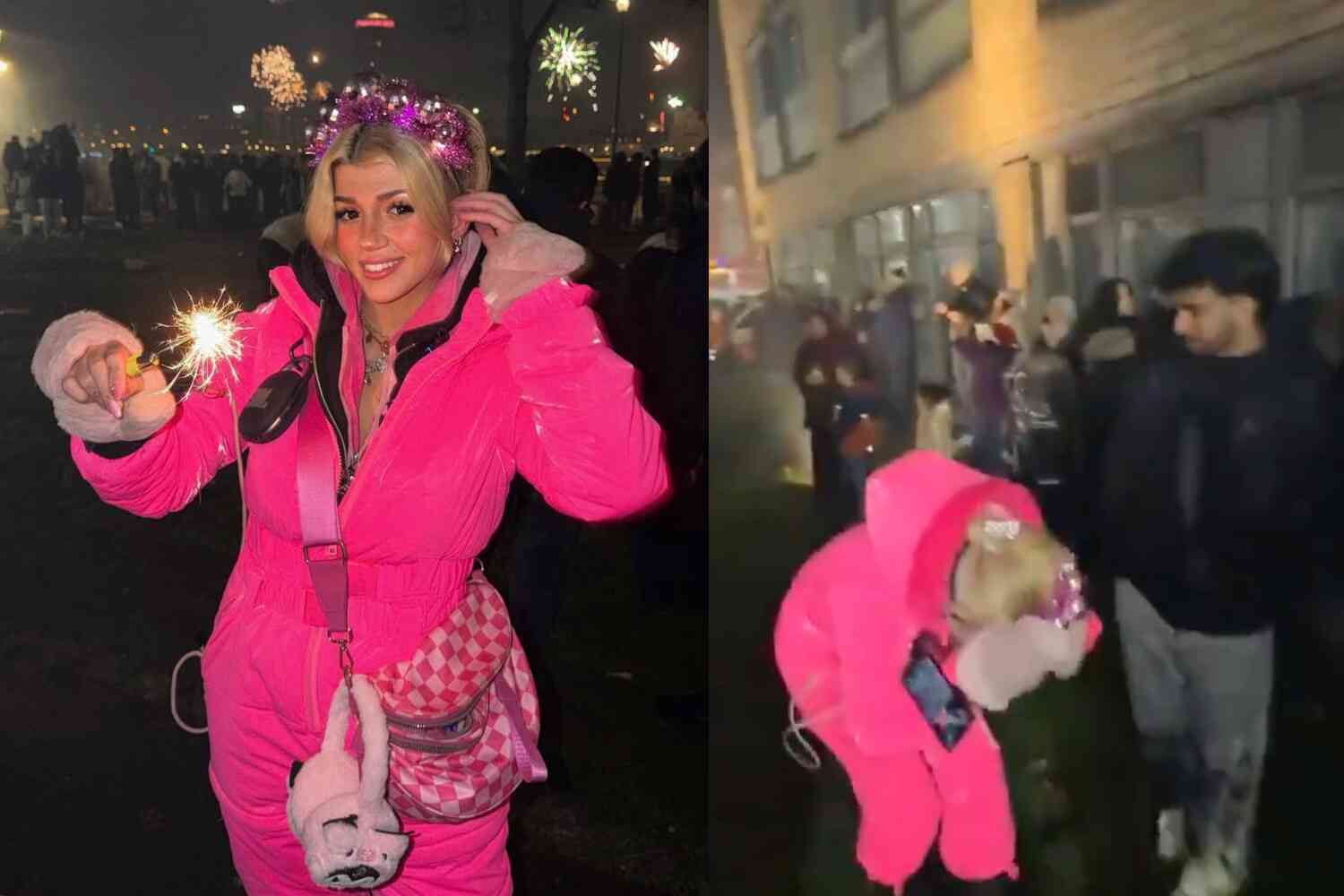Nothing to see here, just the largest teachers union in the commonwealth of Pennsylvania eagerly promoting a workshop the premise of which is that we need to silence an entire racial group.
Just another day in America.
The largest teachers' union in the commonwealth is offering its members a three-part seminar beginning in October focused solely on the New York Times podcast, "Nice White Parents."
We've briefly touched upon "Nice White Parents" before. I would have liked to think it was so despicably racist that it could not possibly spread much beyond the Hudson River, and yet now we apparently have a breakout in Pennsylvania.
According to the Pennsylvania State Education Association's advertisement, the 10-hour workshop will explore "a key driver in what is blocking educational integration and equity: the actions of White families," and will run over a series of days in October.
There was a time when people wouldn't say things like this out loud. Our culture had decided that racism would no longer be tolerated and so was banned from polite conversation and more or less banished from the public sphere.

It's definitely back in the public sphere now. They even made up a flyer!
Everyone likes flyers.
"The final session on Monday, November 8, will serve as a reflection of the podcast. As a group, we will develop ways we can impact change," the advertisement concludes.
Interesting. The workshop presumes that the power of white parents needs to be limited, and these teachers, the ones whose salary you pay and who work for you, are going to as a group, "develop ways we can impact change."
"Impact change?" Okay, let's leave that little rhetorical horror show aside: The only possible conclusion regarding "impacting change" here is to reduce the "power" white parents have in their children's education.
By the way, it goes WAY beyond that which we'll get to later. Way beyond. But first, a quick(ish) review of the five-part "Nice White Parents."
The podcast was created last year by radio journalist and producer, Chana Joffe-Walt. It's well written, and well produced as you would expect. However there's something that I think gets overlooked. Its scope is absurdly narrow.
From Serial and The New York Times: "Nice White Parents" looks at the 60-year relationship between white parents and the public school down the block.
The entire series is based on a middle school near where she lives, the "School for International Studies," or SIS.
That's pretty much it. It would be as if I drew expansive conclusions on the state of American yard care by staring at my lawn. (It's a crisis!!) She pulls other references in, and cites additional sources on occasion, but there's no avoiding it:
The educational experience in the entire commonwealth of Pennsylvania is about to be reshaped by what happened in a middle school in Brooklyn near some reporter's home.
It's just one big personal anecdote.
Episode One: The Book of Statuses
In this episode Joffe-Walt takes us on a deep dive into the fascinating world of PTA meetings, petty jealousies, and turf wars.

To sum up, a white parent successfully got a bunch of other white parents to send their kids to SIS, which was predominantly non-white, by taking the lead in raising funds for a french language program.
This retelling takes an hour, by the way. I suggest coffee.
I will say from the outset that there were some communication lapses recounted, but basically, the parent was a professional fundraiser trading off his contacts, knew his business, and did not want the PTA to muck it up.
Rob and the new parents did tell the principal that they wanted to fundraise in a different way, but Imee felt like, what about the rest of us? She felt like the PTA was ignored. At that last meeting, Imee went quiet. She told me she just felt enraged, and then embarrassed for feeling so enraged.
Imee Hernandez:
"I guess I just threw a tantrum. [LAUGHS] And I just didn't want to be a part of it. Which is not right, but I think, again, in the moment, I just felt like — I was hurt."
There's a lot of this.
He gets the French embassy involved, and a gala is planned at their cultural center in Manhattan. Culture clashes follow.
Look, I'm going to take a wild guess here, but I suspect that about 95% of our readers, regardless of race, would encounter culture clash if invited to an event sponsored by the French embassy in Manhattan.
It goes on like that. The white parent managed to get white kids in the school, and raise a bunch of money.
And we want white parents to shut up now because not everyone likes duck liver on a cracker?
I'm really not certain what purpose the story served other than to highlight the differences between the rich and the poor.
Episode Two: ‘I Still Believe in It'
Here Joffe-Walt goes down memory lane and recounts the sordid history of integration attempts in the '60s, again, focusing solely on this one middle school in Brooklyn.
I found this episode useful in two ways. The first way is almost certainly unintentional in that it highlights what real systemic racism looks like.
We're talking chronically neglected and underfunded public schools that served black students, toilets that didn't work, etc. Truly awful stuff.
Second, and also unintentional, is that it reveals what this whole story is really about, and it's not white parents.
It's virtue-signaling New York liberals.
After recounting efforts early on by these status seekers to "integrate" the schools, and then not actually sending their kids to these allegedly integrated schools, Joffe-Walt concludes this:
Here is what I think happened over those five years between the writing of the letters in 1963 and not sending their kids to the school in 1968. Those five years were a battle between the Board of Education's definition of integration and the actual integration that black parents wanted. For black parents, integration was about safe schools for their children, with qualified teachers and functioning toilets, a full day of school. For them, integration was a remedy for injustice.
What they wanted, is what all parents want: The best for their kids.
The Board of Ed, though, took that definition and retooled it. Integration wasn't a means to an end. It was about racial harmony and diversity. The Board spun integration into a virtue that white parents could feel good about. And their side triumphed. That's the definition of integration that stuck, that's still with us today. It's the version of integration that was being celebrated 50 years later, at the French Cultural Services Building at the Gala for SAS.
In the end, the virtue-signalling liberals got the school where they wanted, further away from the black and Puerto Rican kids, and it ended up populated predominantly by black and Puerto Rican kids anyway.
It's not about race. It's about neurotic New Yorkers.
Episode Three: ‘This Is Our School, How Dare You?'
This episode has a catchy title, but is a disorganized mess with no obvious theme.
Joffe-Walt starts complaining about a gifted program in a nearby school that consists of mostly white kids.
...But Norm Fruchter, the school board member, told me once the gifted programs were in place, they were there to stay. The board was serving a constituency of white parents who believed their kids deserved a program to serve their unique needs. And he says, those parents wielded tremendous power.
"White parents." Not affluent parents, white parents.
And they want what's best for the kids. This is her big scoop.
Aside from the white kids and white parents, what was the problem with the gifted program?
...But white families in the district were drawing resources away from I.S. 293 by creating specialty gifted programs in other schools.
New York City Public Schools are horribly mismanaged, but funding one program does not mean you're "drawing resources away" from another. That's an old canard.
It spends even more time recounting a story intended to support a consistent thesis of hers, that of the "unreliable white families." These are the white families who show up, make promises, but fail to follow through.
The example is ludicrous.
A white woman kicked off a plan for a new school that would emphasize "diversity" and would go by the name, "Brooklyn School for Global Citizenship."
The planning committee put together a 13-page proposal for a new school called the Brooklyn School for Global Citizenship. The local community school board approve it; although, somewhere in the process they dropped the citizenship part — too controversial — and it became the Brooklyn School for Global Studies. OK. So, why am I telling you about the School for Global Studies? Because this brand new school needed a building — the community school board surveyed its options and chose a spot. The School for Global Studies would be located in the basement of I.S. 293.
Guess what, after having changed the name, the focus, and location, the "white" families originally behind it never showed up.

Joffe-Walt concludes the episode by fast forwarding to where she began in Episode 1 with 2017. The school is a hot ticket now. You'd think that would be good, but not in Joffe-Walt's world.
Three years earlier, SIS had 30 sixth graders. What changed? The admissions director is the same. Most of the staff is the same. The building is the same. The test scores are still pretty low. There's an IB program now in French. But the biggest change between the era of being ignored and punished and the era of being celebrated and oversubscribed is that white kids arrived. That's what's different, nine times as many white students.
This is all about wealth, of course, as I've been saying, but let's adopt Joffe-Walt's neo-Marxist premise that it's all about race.
The problem is integration. The problem is white kids.
And their parents, of course, the power of whom apparently knows no bounds!
I.S. 293 was a mostly segregated school for decades. And still, it was subject to the whims of white parents. Nice white parents shape public schools even in our absence because public schools are maniacally loyal to white families even when that loyalty is rarely returned back to the public schools.
To return to reality, public schools are maniacally loyal to money because they are maniacally loyal to power. This is true in New York City more than anywhere except perhaps Washington.
I think the only way you equalize schools is by recognizing this fact and trying wherever possible to suppress the power of white parents. Since no one's forcing us to give up power. We white parents are going to have to do it voluntarily. Which, yeah, how's that going to happen? That's next time on "Nice White Parents."

"I think the only way you equalize schools is by recognizing this fact and trying wherever possible to suppress the power of white parents."
Episode Four: ‘Here's Another Fun Thing You Can Do'
Even when we're not in the school building, funding and attention still slide our way. So I don't see how it's possible to have equal public schools, common schools that serve every child, unless we limit the power of white parents.
Again, were she talking about wealth and power, and this being New York City, she'd have a point. The city's public school system is a disgrace. She loses me, and all those rich white parents, when she racializes it.
No matter, she's very excited that it's already happening!
Recently, I've come across two examples of schools that seem to be suppressing the power of white parents, two examples I found in the very last place I expected, in the I.S. 293 building, one upstairs and one downstairs. So today's episode, what does it look like to limit the power of white parents in schools? And does it work? Does it lead to an equal education for everyone?
Some paragraphs later, after addressing what appears to be a successfully integrated and overall successful charter elementary school in the basement of SIS, she accidentally reveals the truth.
White parents opted in. The way families at this Success Academy — it's called Success Academy Cobble Hill — tend to come from advantage, just like the white parents upstairs at SIS. They're upper middle class and rich, doctors and lawyers, corporate accountants, people who walk into most public schools with a lot of power.
Doctors, lawyers, corporate accountants.
How much power do steam fitters, truck drivers, and waiters wield in the halls of "most public schools" regardless of the color of their skin?

So, how is all that "white" power limited?
The parent council [for the charter school] is not that similar to a PTA though, because in the very next sentence, Principal Bishop told me that the parent council is not allowed to raise money.
It is here we get so something I alluded to in the beginning, the fact that this is not about racism. It's about, surprise surprise, power.
The C.E.O. of Success Academy, Eva Moskowitz, followed up later to tell me, if parents want to give money, they can. But it will be distributed evenly across all of our schools. We can't have our Cobble Hill families getting more than our families in Harlem.
The provision of equal public education for all children is one of the few genuinely "socialist" programs I could get behind, but we're talking about something different here.
Here's what I started to understand about how Success Academy was limiting the power of white parents. Success was limiting the power of white parents by limiting the power of all parents.
That's what it's about.
You don't get a say in it. The genuinely powerful do, including the politicians and the ones who pull their strings. You're just parents, why should you have any say in your children's education?
If public schools were efficiently run, if they weren't captured by teachers unions, if they weren't repurposed as political indoctrination camps, if they were actually successful in educating kids, you wouldn't need parents raising money.
This is isn't about the power of white parents, it's about the failure of those in power to educate your kids, to keep their best interests at heart.
It gets better.
I met a dad named Travius Sharpe outside the building one day, a Black guy who grew up in Brooklyn. His son Ethan is at Success.
Travius Sharpe: We actually get graded.
Chana Joffe-Walt: You get graded?
Travius Sharpe: We get graded as the parents. We get an email saying, this is what your progress is saying.
Chana Joffe-Walt: You get a grade, like an A, B, C?
Travius Sharpe: They get like a meeting expectations or —
Chana Joffe-Walt: Not.
Travius Sharpe: — not.
I hope you're being a good little parent.
Upstairs, SIS tripped over itself to meet the demands of new, white parents. Downstairs, all parents at Success Academy are being graded. Even day to day, the Success principal and teachers make sure to remind parents when they're falling down on the job.
Speaker: So we running a little late. Why is Ethan late? It's your fault why he's late. I think one day, I was late. And she texted and said, Ethan is not here yet. Any reason why? And I felt like I wasn't the parent at that point. That's their time. But it keeps you on your toes and stuff like that.
Chana Joffe-Walt: You felt like you weren't the parent.
Speaker: I wasn't the parent. I wasn't the parent. And I felt like I was just dropping this kid off to his parents.
I'm sorry, did I say parent?
You're not the parent anymore.
They are.
Success achieves equality, at least in part, through utter uniformity. Every Success Academy across the city uses identical methods, identical curricula, and identical classrooms. The kids sit on the same polka-dot carpet, hands locked in their lap, same signs on the wall, singing the same chants.
I understand using "best practices," and I understand the importance of order and discipline when dealing with small children, but I'm getting a very different vibe than that here.
But Joffe-Walt is loving it.
She also loves bringing all her own baggage to the story and dumping it on people she doesn't know.
I suspected that the strict classroom control was partly what made white parents feel comfortable at Success Academy. I'm speculating here.

None of the white parents I spoke with told me they chose Success because the school polices Black and brown students so well. And I don't believe this is a conscious thought for anyone.
None of them.

But I do know that white parents bring plenty of unconscious biases to public schools with Black and brown kids, fears that the classrooms will be chaotic, or not challenging, that the kids will be disorderly or threatening. White parents worry that our kids will be harmed.

Success Academy completely controls for these fears.
She's totally not projecting here.
Joffe-Walt notes that Success Academy got into some trouble because it did not immediately fall into line after the George Floyd killing.
In response, the C.E.O. apologized, and Success has released a plan that commits to mandatory bias and sensitivity training for staff. The plan says they will create an Equity Team and review their culture, their relationships with staff, and families, and kids with quote, "an attention and sensitivity to race."
Based on the programs I've written about at other schools, I'm sure that will turn out great.
I read this plan and thought, huh, there is a school that's already doing many of these things, right in the same building, right upstairs.
This brave new world?
The school is no longer called SIS, the School for International Studies. It's now BHS, the Boerum Hill School for International Studies. They changed the name, again. BHS has a new principal, Nicole Lanzillatto. She gets up on stage, and the staff cheers. Miss Lanzillatto welcomes the new families to BHS.
Miss Lanzillatto says BHS is going for true equity. She says the word equity three times in this welcome speech.
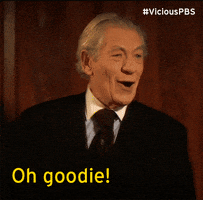
That's how you can be confident your child will learn his multiplication tables.
The assistant principal told me they wanted to make sure the school did not become colonized. Some things here have changed. They got rid of the foundation, the Brooklyn World Project Rob and the other white parents had created. They scrapped some of the French programming, hired more teachers and staff of color. And one of the most striking changes I noticed — spend 10 minutes of the school, and you can't not notice — Miss Lanzillatto is talking directly and constantly about race and equity. She told me everyone here needs to be on alert for racist habits and ideas. They need to aggressively address them, whenever they pop up, in the cafeteria, in the classroom.
This is anti-racist CRT training on steroids.
And we've encountered it time and again. It's not about being alert for "racist habits and ideas," it's about instilling racist habits and ideas.
One Saturday morning, a group of two dozen parents gathered in the BHS library for something called Family Academy. This event was open to everyone, but mostly white parents showed up. And many of them shared that they had never really talked about race very much when they were growing up.
I've said this many times before, but that's what people do who are not racist. Because race doesn't matter. If you think it does, you're the racist. If you teach others to think about it constantly, in every interaction, you are creating more racists.
Episode Five: ‘We Know It When We See It'
I never expected to make a fifth episode.
I never expected you to get past Episode 1.
I'll spare you the tedious prologue of Episode 5 and skip to the conclusions.
The District 15 Integration Plan scrapped the current system — no more screening kids for test scores or attendance or for being nice. Middle school admission would proceed by lottery. Every parent would still get to rank their top choices, but every school would be required to offer 52% of its seats to kids who are poor, speak English as a second language, or live in temporary housing. As part of the new plan, the district would expand anti-racism and anti-bias training for administrators, staff, parents, and students, create equity teams in schools, create more culturally responsive curriculum, and hire more teachers of color — all things that parents of color had pushed for during the workshop process.
I more or less grew up in a small town. There were was one middle school, and no private schools within any reasonable distance that I can recall. Everyone went to that school, from every plot on the socioeconomic scale. It was not racially diverse, but it was very much culturally diverse.
I think that's a good thing. I'm sending my kid to public school for the same reason.
Still, hard work and merit need to count for something if we're going to get the best out of each kid, and I think some schools being set aside for the truly gifted makes sense, and I don't care if they fill up with Asian-Americans either, because they're Americans and I want what's best for America.
And teaching kids to be racist, which is what "anti-racist" education is all about, is child abuse as far as I'm concerned.
These are not solutions.
And as I mentioned before, the public school system in this country is a disgrace, does a poor job serving the poor, and places kids last in the hierarchy of interest groups.
But Joffe-Walt's notion that "public education won't be fair until school systems limit the power of white parents," is racist, divisive, and frankly click bait presented with the veneer of serious journalism.
It's not even remotely serious. It focuses on one middle school in Brooklyn.
I used to live in New York, I spent a fair amount of time in Brooklyn, and Brooklyn is not a microcosm of the country at large. It's a microcosm of Brooklyn.
It's equally absurd that we would use the behavior of a handful of wealthy, status-insecure parents from Brooklyn (not a one of whom doesn't wish he or she could afford to live in Manhattan) as an example of white people behaving badly.
What makes her podcast particularly execrable is she thinks that not only is it a problem to have white parents involved in school, she implies it's a problem to have white kids attending them.
And yet here we are, this mess of a series, the premise of which is racist, is being promoted by the largest teachers union in Pennsylvania so they can roll out its lessons across every public school.
Here we are.

P.S. Now check out our latest video 👇





